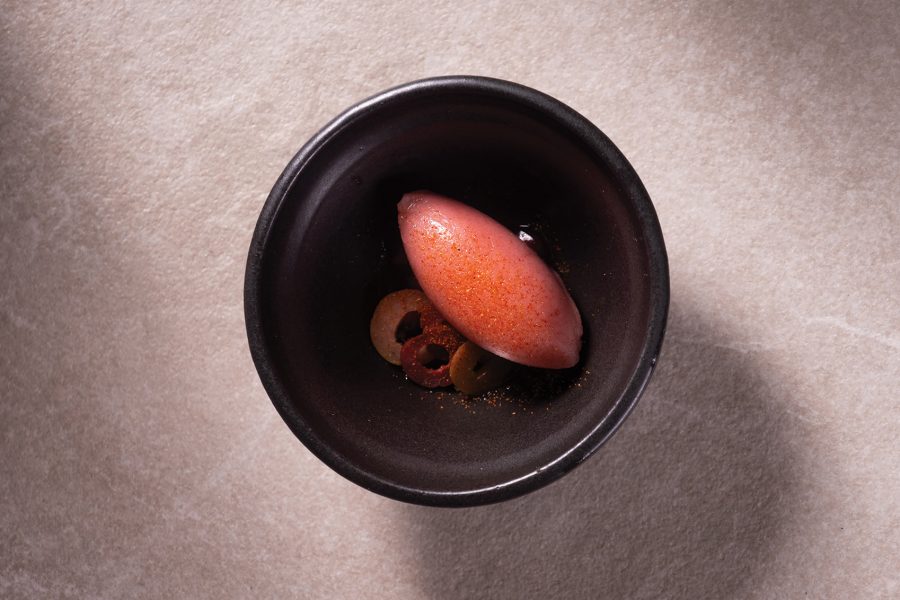Indian cuisine has traditionally been driven by time-honoured recipes and classic flavours. However, a new wave of young chefs is travelling around the country, from the snow-capped peaks of the Himalayas to the coastlines of the south, to source homegrown ingredients and put them centre-stage.
Mumbai is where you’ll find some of the most cutting-edge establishments: once restricted mainly to expensive hotels, the city�’s fine dining scene is diverse, progressive and full of intrigue. Chefs in this busy metropolis are crafting menus that push that envelope and tell stories in new, imaginative ways. Here are some of the best.

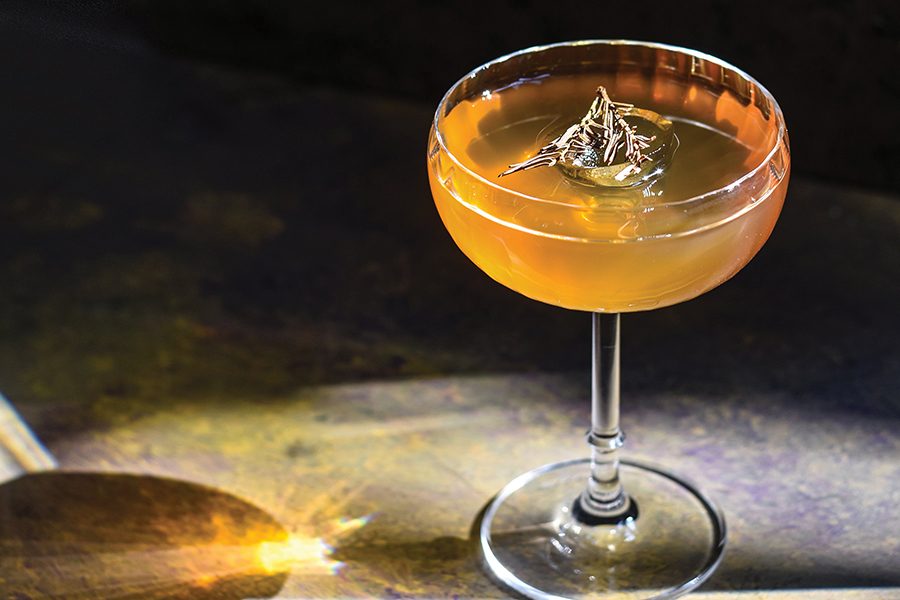
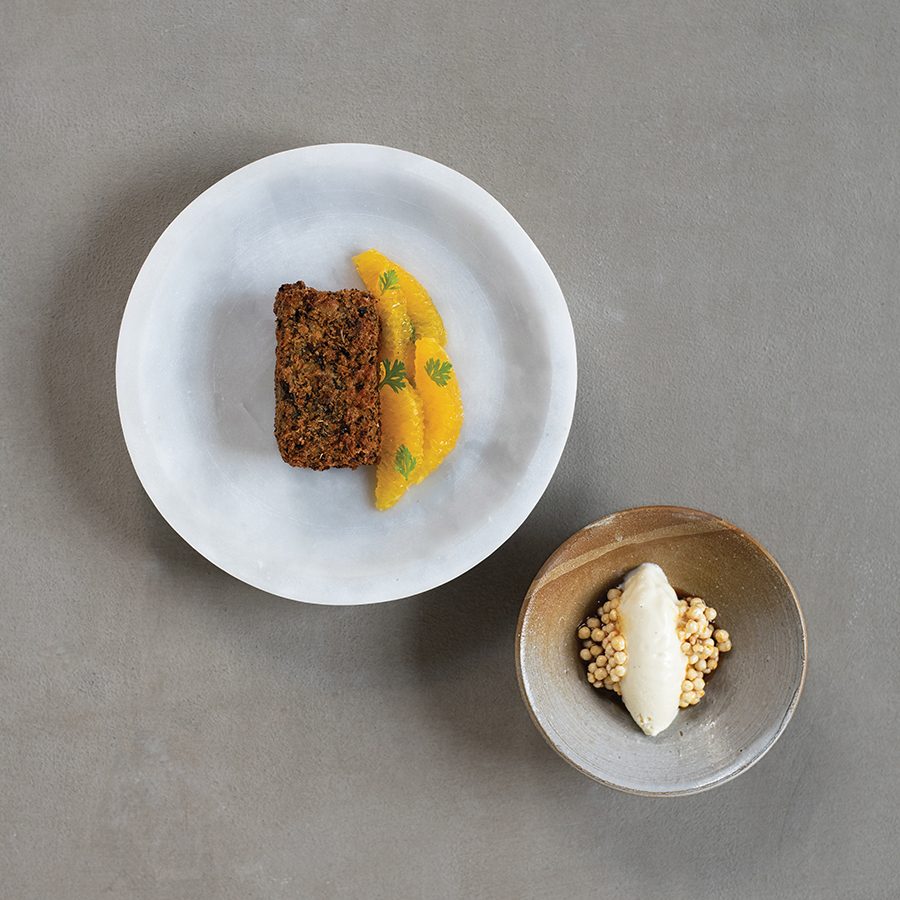
Ekka
Elegant Ekaa blends Japanese and Nordic-inspired accents with the charm of Kitab Mahal, the 19th-century neocolonial building in which it’s located. Earthy hues are accentuated with handmade wooden furniture, and moulded lamps and dinnerware are sourced from local artisans.
Chef Niyati Rao and her business partner, Sagar Neve, made it onto Forbes India 30 Under 30 2023 list, with their restaurant ranking on Asia’s 50 Best Restaurants 2023 list.
The menu is an interplay of the chefs’ childhood memories and voyages around the world, prioritising seasonal produce. Rao recommends the bombil – a local fish served in a Japanese grilled style with a soy and Indian mango glaze, using a mango jaggery pickle called gor keri. It’s paired with local sticky rice, dried fish floss and spicy cucumber.
Wash it down with the Himalayan Fir cocktail, which pays homage to India’s landscapes, natural bounty and Ayurvedic tradition with Indian gin, Nepalese pine leaf infusion, elderflower, pinewood and citrus.
Avatara
Avatara – meaning “incarnation” in Sanskrit – was the world’s first vegetarian Indian restaurant to receive a Michelin star. The famed Dubai establishment’s sister restaurant, opened earlier this year in Mumbai, draws inspiration from the Himalayas in its decor, incorporating elements such as the undulating waters of the Alakananda River and the serenity of Hindu pilgrim town Gangotri.
Avatara subverts dated preconceptions of Indian food through its 10-course experience menu, which also eschews onion, garlic, mushrooms and paneer in dishes such as green pea chokha (dough balls) with shiso luchi cannoli and tomato jhol, or gravy, and spiced banana with idiyappam (rice flour noodles) and curry leaf.
“I want people to experience how diverse vegetarian Indian food can be, and how it’s more than just paneer and potatoes,” says executive chef Rahul Rana. “The diners who visit us are often people who’re looking to experience an elevated version of vegetarian food and are willing to explore regional Indian cuisine.”

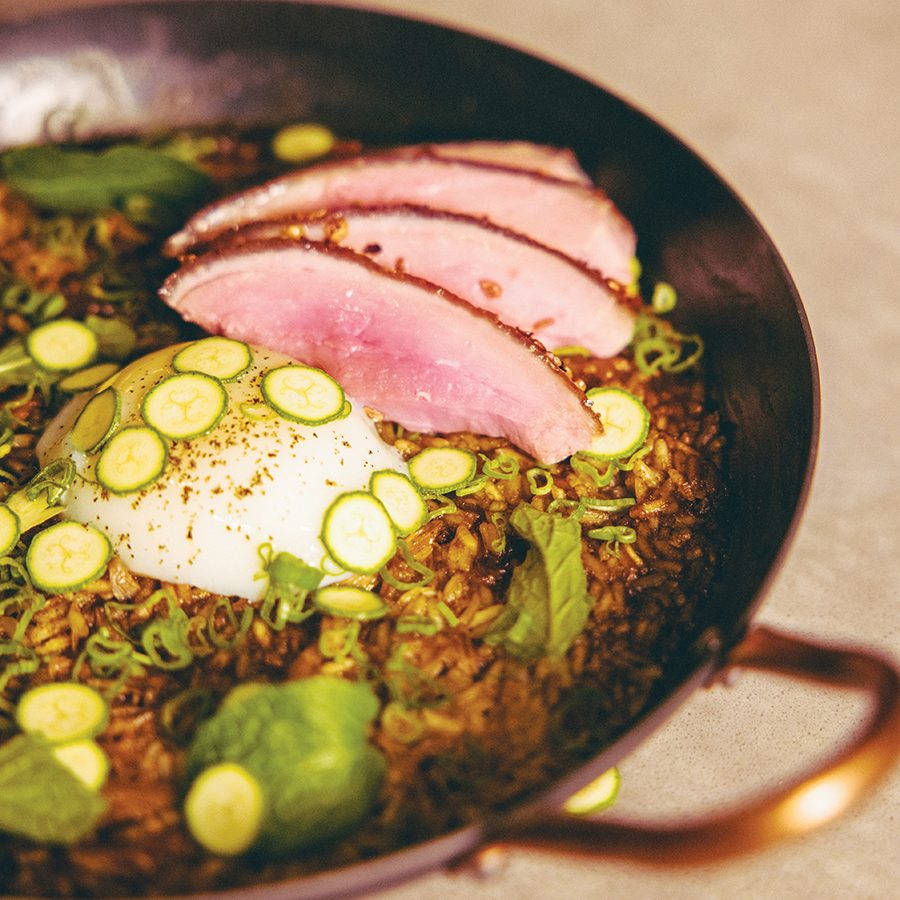
Papa’s
Hidden above a neighbourhood sandwich shop, Papa’s offers a take on fine dining that caters to just 12 guests at a time, creating an atmosphere akin to a casual dinner party at a friend’s home.
The restaurant takes its name from the late chef Floyd Cardoz, affectionately known as papaji (“dad” in several Indian languages), who was executive chef Hussain Shahzad’s mentor. “His deep love for feeding people and passion for fine dining inspired us to create a space that’s a tribute to him,” says Shahzad.
Exemplary of the Papa’s approach is What the Duck, a biryani served with seven-day, dry-aged duck instead of the usual chicken or mutton. It’s cooked with indrayani rice, a local variety from India, presented like paella (its socarrat, or crispy crust, is known as khurchan) and served with homemade cola and smoked aubergine raita for a complete biryani experience.
Guests can also sample lesser-known ingredients, including lion’s mane mushrooms from Delhi, rabbit meat from Nashik – inland from Mumbai – and red weaver ants from the state of Odisha.
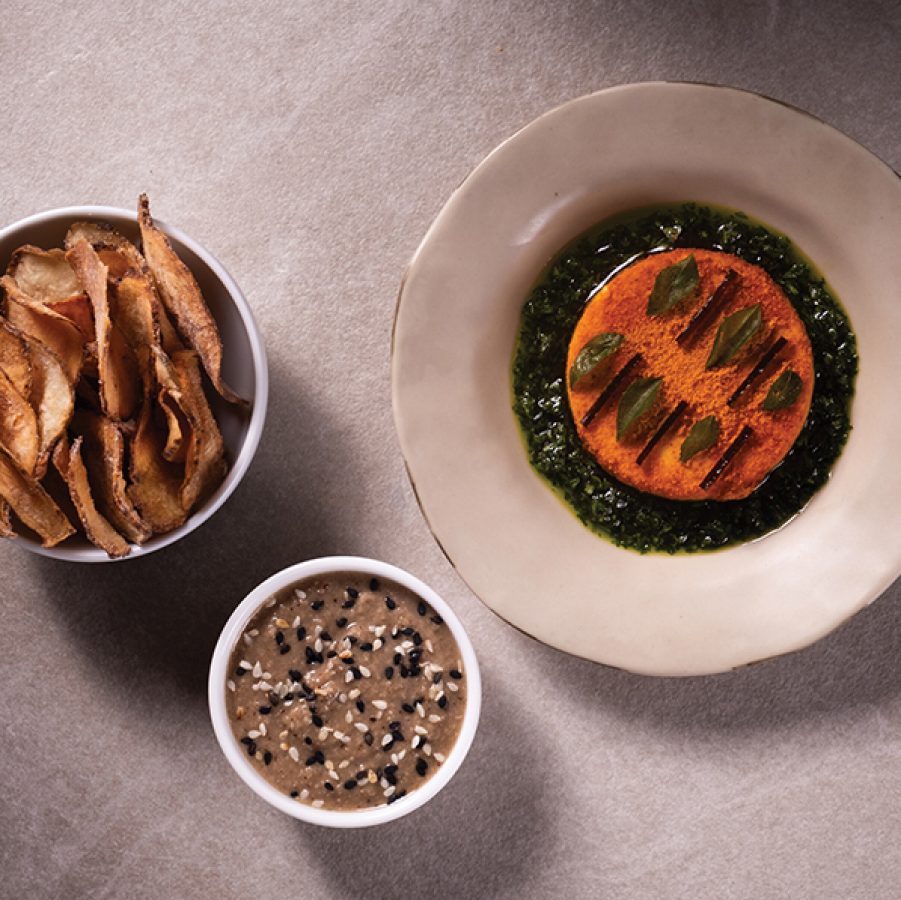
Masque
When founder Aditi Dugar launched Masque , her father-in-law refused to dine there due to his strict Jain vegetarianism. Despite Dugar’s personal adherence to the diet, her restaurant serves a diverse non-vegetarian menu. Its constant innovation and seasonal approach saw Masque ranked India’s best restaurant on the Asia’s 50 Best Restaurants 2023 and 2024 lists.
A stylish former textile mill is the setting for 16-course tasting menus – one vegetarian, the other meat-based. As the seasons change, so do the menus: each is composed of ingredients sourced from the restaurant’s farm, foraging trips and a network of local farmers. One course might contain blackened sunchoke with coconut; the next might feature fermented cashew covered in podi, a coarse powder of lentils and spices.
“Our recipes are made to celebrate India and its extremely rich culture, food, flavours, techniques and traditions,” says head chef Varun Totlani. “The joy is in delighting our diners with something new each time.” Dugar’s father-in-law now frequently dines there – and proudly brings guests.
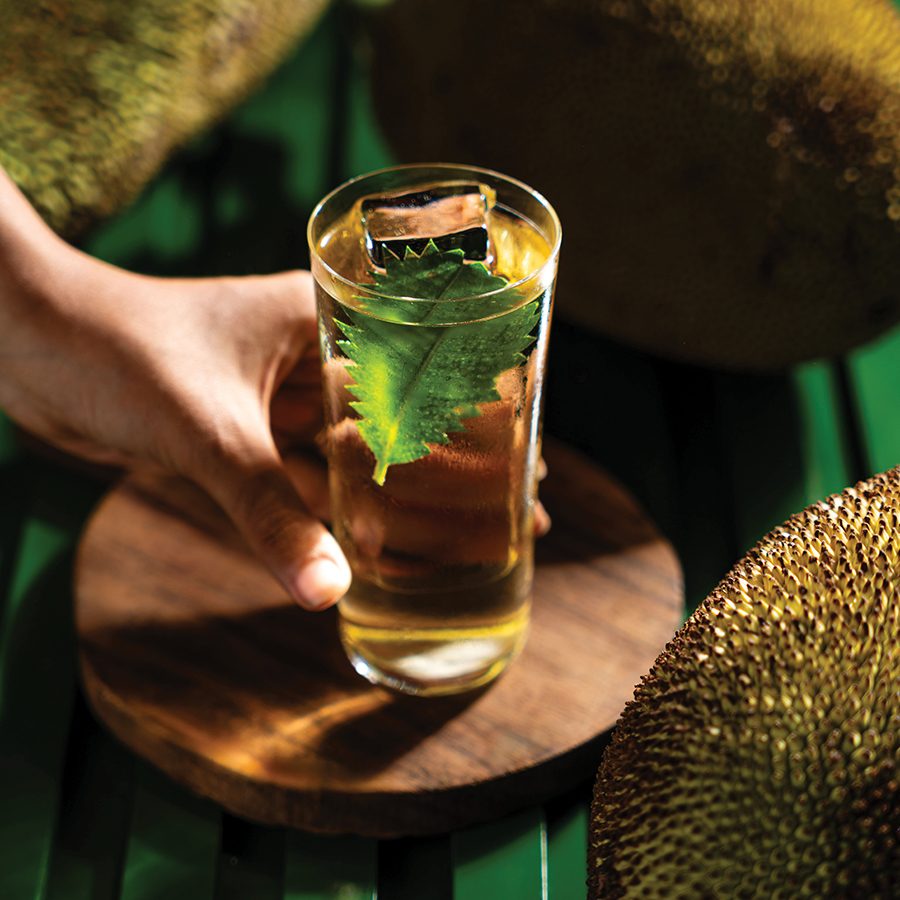
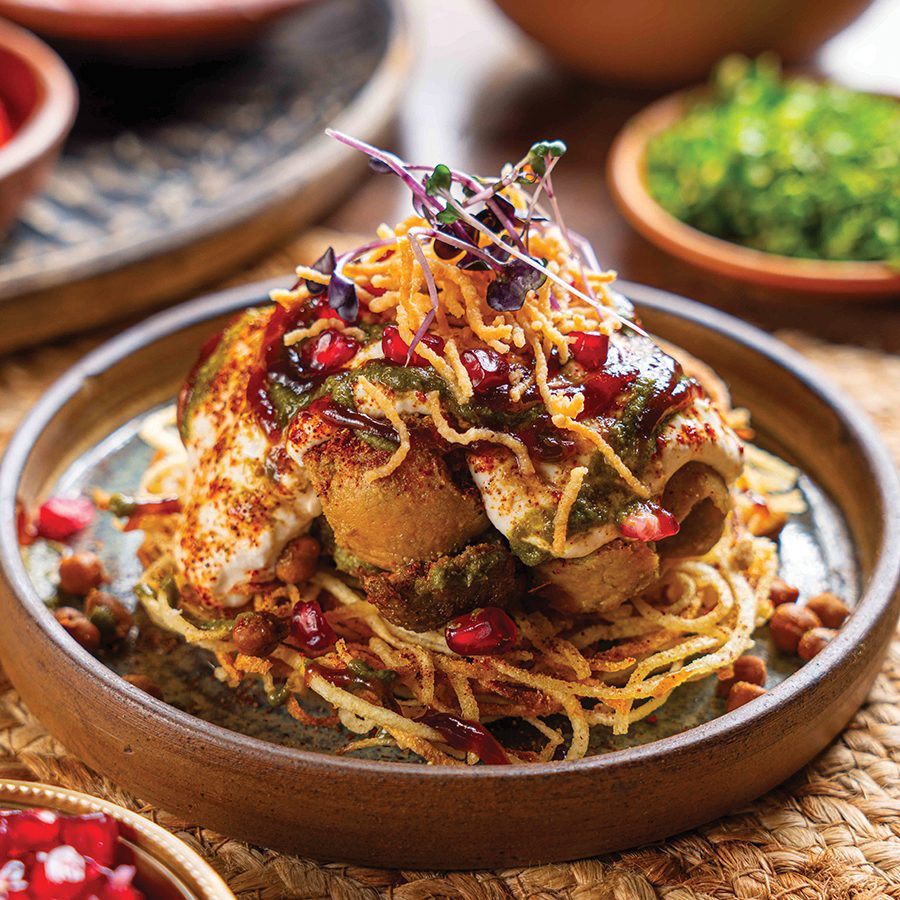
Bawri
Chef-partner Amninder Sandhu puts a cool spin on regional heirloom recipes at Bawri . The restaurant blends “traditions and rituals that you rarely see any more and warmth that you would feel when you went over to your grandmother’s or relatives’ place after a long time”, she says.
Upon arrival, you’re greeted with a shower of fresh rose petals – an age-old Indian custom to welcome visitors – and the chance to wash your hands with a copper-hammered surai, encouraging you to eat without cutlery, as is tradition.
Park up at the island bar or make yourself comfortable in one of the private booths, then dig into lesser-known regional dishes, such as yetti dosa and wild mango curry. The potato basket chaat, a riff on a street food staple, is a birds nest-esque construction filled with dahi bhalla, or soft lentil fritters, in a spicy, sweet, tangy, crispy melange.
End your meal with the Bawri jamun, a super-sized gulab jamun, India’s favourite spherical confection, drizzled with rabri, spiced condensed milk.
